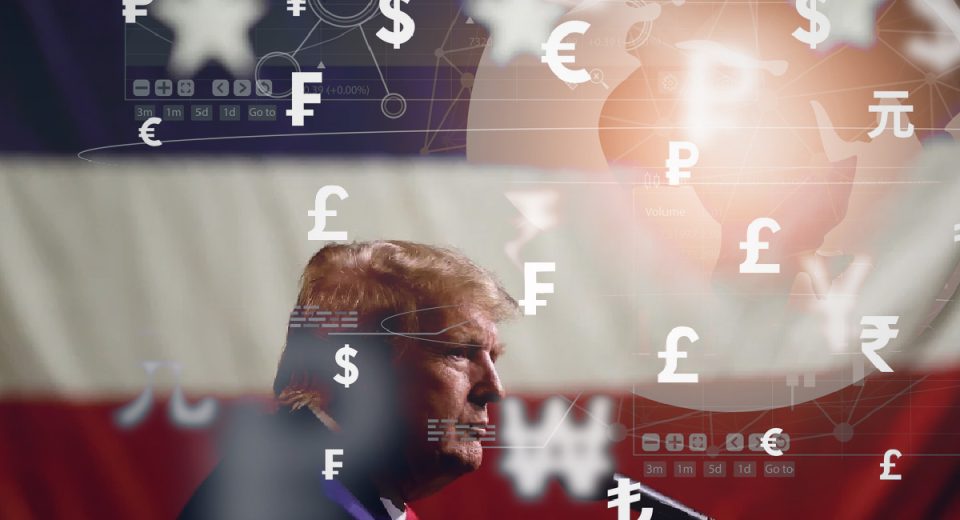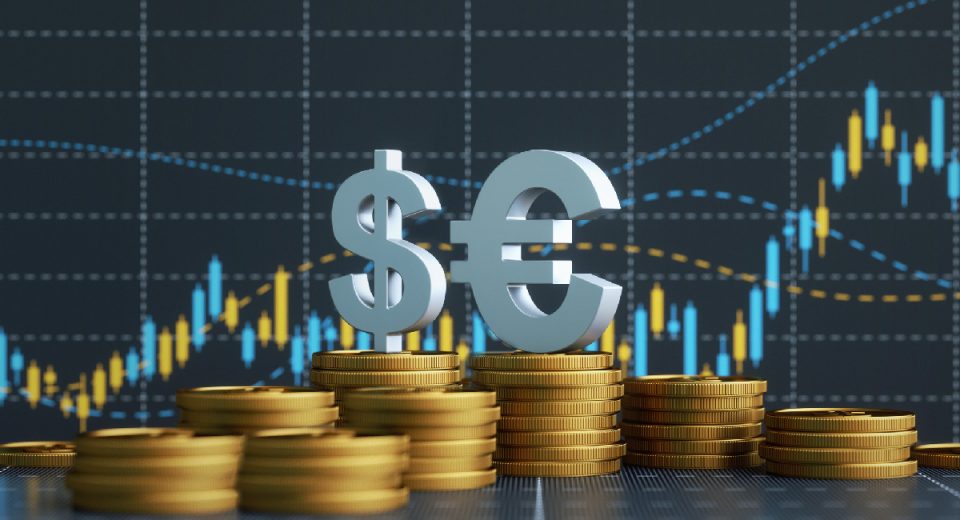Gold has been a store for value for centuries. It is considered a safe haven during economic turmoil and geopolitical uncertainty. Amid rising inflation, continued geopolitical conflicts, and volatile stock markets, it has once again become the centre of attention. According to an April 2024 report, Goldman Sachs raised the year-end price forecast for gold to $2,700 per ounce, claiming that the yellow metal is in an “unshakable bull run.”
Read on to learn about the tailwinds propelling the gold price to new heights and the headwinds that may deter it from breaking more records.
Factors Fuelling the Optimism in the Gold Market
Gold prices have experienced a significant rise in 2024. As of July 8th, the yellow metal had climbed 23.72% over the past year, hitting a record high of $2,426 per ounce in May.
Geopolitical Tensions
Ongoing conflicts in Ukraine and the Middle East are driving traders to safe haven assets. The sudden demise of the Iranian President on May 19 has raised concerns regarding another potential feud in the region. The shocking news pushed gold price to an 11-year high of $2,450.07/ounce, although only for a short time. While the yellow metal ended the day a little lower, the spike was a great opportunity for high-frequency gold traders.
Inflationary Woes
Inflationary pressures remain a concern globally. The OECD expects headline inflation to remain at around 5% in 2024, significantly higher than central bank targets in major economies. Gold is considered a hedge against inflation as its value tends to hold steady when fiat currencies depreciate. Therefore, investor sentiment is bullish on the precious metal.
Central Bank Activity
Central banks of emerging economies have been increasing their gold reserves since 2023, potentially signalling a broader shift towards the precious metal. This increased demand is a significant contributor to price appreciation.
Interest Rate Expectations
Uncertainties regarding the Fed lowering interest rates in September increased after the release of the FOMC’s meeting minutes on May 22. However, if rates are cut, it would lower the demand for the dollar, weakening the currency. Gold is inversely correlated to the greenback, which means the yellow metal could rise in such a scenario. These speculations are exerting upward pressure on gold prices.
Analyst Predictions Have Piqued Investor Interest
Goldman Sachs is not alone in raising its price expectation for the shiny metal for 2024. Citigroup also forecasts that “investor inflow” may sustain the rally, pushing the price to $3,000/ounce by November 2025. The World Bank also predicts that gold will continue to shine brighter, expecting the price to remain 8% higher in 2024 than in 2023, supported by central bank demand, sticky inflation and retail investment. The World Gold Council’s April 2024 report mentions that the yellow metal may outperform its outlook, provided at the beginning of the year. The council believes that recycling and mine supply will both feed demand.
Potential Headwinds to the Gold Rally
Despite the bullish sentiment, some analysts caution against excessive optimism. They believe reaching a true “unshakeable” bull market is not so likely for gold. Here are their reasons.
Resistance Levels
Gold is trading in a critical resistance zone. Both RSI and Fibonacci indicate that the market is overbought. This signals that the price is ripe for a reversal. A breakout is likely if the precious metal surges further, although the possibility of a reversal cannot be ignored.
Stock Market Rebound
By April 24, 2024, 79% of companies that reported their earnings had exceeded analyst expectations for Q1. Strong earnings reports indicate that the stock market rebound may continue through Q2 and Q3. This may divert traders’ interest and pull investments towards equities.
Interest Rate Decisions
The Federal Reserve’s monetary policy decisions can significantly impact gold prices. For now, the Fed remains cautious about “moving too fast.” If the higher-for-longer stance continues through Q3, the dollar may surge further, weighing down on gold.
The Takeaway for Beginner Traders
Gold is certainly an interesting market to explore. As a safe haven and tool for diversification, it finds a place in many experienced traders’ portfolios. The current market situation suggests that the precious metal is likely to continue to present tremendous trading opportunities. But the gold rally should be approached with a balanced perspective for informed decisions. Use technical analysis to discover trading opportunities and observe various factors that usually affect gold price, such as:
- Geopolitical updates
- Fed interest rate decisions
- Inflation data
- Seasonal demand
The good news is that you don’t need huge capital reserves to gain exposure to the gold market. Derivative instruments, such as CFDs, allow you to trade gold with leverage. This amplifies your purchasing power. Moreover, CFDs allow trading both rising and falling prices, multiplying trading and offering a mechanism to hedge against your positions. However, margin trading enhances profit and loss potential alike. Therefore, risk management is crucial while trading with CFDs.
To Sum Up
- Gold prices are rising due to intensified geopolitical conflict, sticky inflation, and demand from investors and central banks.
- Analysts worldwide expect the yellow metal to continue the rally through 2024.
- Despite many supporting factors, certain headwinds may weigh on gold prices.
- Traders must make informed decisions by keeping an eye on breaking news and using technical analysis.
- CFDs are a great way to gain exposure to gold market, although risk management is critical.
Disclaimer
All data, information and materials are published and provided “as is” solely for informational purposes only, and is not intended nor should be considered, in any way, as investment advice, recommendations, and/or suggestions for performing any actions with financial instruments. The information and opinions presented do not take into account any particular individual’s investment objectives, financial situation or needs, and hence does not constitute as an advice or a recommendation with respect to any investment product. All investors should seek advice from certified financial advisors based on their unique situation before making any investment decisions in accordance to their personal risk appetite. Blackwell Global endeavours to ensure that the information provided is complete and correct, but make no representation as to the actuality, accuracy or completeness of the information. Information, data and opinions may change without notice and Blackwell Global is not obliged to update on the changes. The opinions and views expressed are solely those of the authors and analysts and do not necessarily represent that of Blackwell Global or its management, shareholders, and affiliates. Any projections or views of the market provided may not prove to be accurate. Past performance is not necessarily an indicative of future performance. Blackwell Global assumes no liability for any loss arising directly or indirectly from use of or reliance on such information here in contained. Reproduction of this information, in whole or in part, is not permitted.





